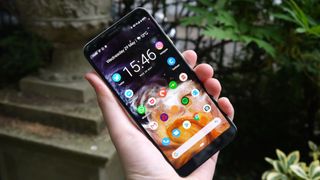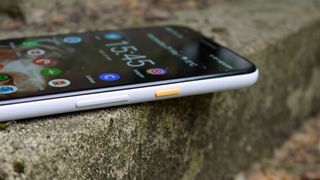The elusive Google Pixel 4a launch date is needed now more than ever
The Google Pixel 4a become long overdue this week

Several suspected Google Pixel 4a launch dates have come and gone, and just this week Google officially discontinued the Pixel 3a and Pixel 3a XL, then it removed both budget phones from its online store without any explanation or comment.
It's been over a year since Google's cheap Pixel phones first launched – they both came out in May 2019 at last year’s Google IO keynote. If you're thinking we should have the sequel, the Google Pixel 4a, by now – you're right.
The coronavirus outbreak has seemingly delayed the suspected Pixel 4a release date again and again; Google IO 2020 was cancelled, alternate Pixel 4a launch dates came and went without a phone launch, and to this day, we aren’t sure if it will come out.
It's unfortunate given the rumors that the cheap Android handset seems like it’s so close to release. Whether you believe a French price listing, an image of several alleged boxed up and sealed Pixel 4a phones, or the recent US FCC and Indian BIS and Sinaporan IMDA certifications, the amount of news would suggest that a launch is coming, if not imminent.
And yet, we have no official reason why the phone hasn’t come out.
Which is a shame given how ready the market is for Google’s handset: as the outbreak has reportedly reduced consumer spending on phones, and among a strong lineup of budget phones released this year, the iPhone SE 2020 has led our picks for mid-range phones. We raved over the Pixel 3a for bringing so many flagship Pixel 3 features to consumers at half the price, and that was in a year without a strong affordable Apple phone.
The Pixel 4a already had its work cut out for it, and now it’s late to its own party.
Get daily insight, inspiration and deals in your inbox
Get the hottest deals available in your inbox plus news, reviews, opinion, analysis and more from the TechRadar team.
- Samsung Galaxy Note 20: on the other end of the phone spectrum
- Samsung Galaxy S20 Lite: could it land this year?
- iPhone SE 2020 vs OnePlus 8: what's different between a mid-ranger and an affordable flagship

Many shifting Google Pixel 4a release dates
Google has to defend its budget crown with the Pixel 4a, not just against the new iPhone SE but the new crop of Moto G8 phones and discounted 2019 flagships like the Samsung Galaxy S10e and OnePlus 7T that top our best cheap phones list.
Some rumors peg the Pixel 4a date as July 13
Many of these phones have a wider camera suite than budget phones of years past, and while the Pixel phones have always held their own against phones with more varied photography setups, this year’s crop has stepped up with rear-facing triple- and even quad-camera arrays. While we liked the Pixel 4’s telephoto lens, we still loved the ultrawide cameras appearing on flagship phones last year – and on budget handsets this year.
Thus, we were eager to see what the Pixel 4a offered that had trickled down from the Pixel 4. But we were also excited for another phone that, since it’s one of Google’s first-party phones, would get Android 11 on the day it’s publicly released – an update that’s poised to overhaul messaging and multi-device management. As phones (especially non-flagship phones) are still struggling to get Android 10, we looked forward to the Pixel 4a becoming a solution for getting Android 11 to people who didn't want to pay a lot out of pocket for a brand new phone.
The Pixel 4a could still be revealed soon – as soon as next week, as some rumors peg July 13 as the next possible launch date. But even if it is, another suggests that the phone’s actual release could still be pushed back until October. Which would put it alongside the actual Google Pixel 5 release.
Not so far that we won’t appreciate the phone, but long enough for the iPhone SE 2020 to solidify its hold – and other contenders like the recently confirmed OnePlus Nord or the rumored Samsung Galaxy S20 Fan Edition to beat Google to the punch.
- Best cheap phones: the top phones at budget prices
David is now a mobile reporter at Cnet. Formerly Mobile Editor, US for TechRadar, he covered phones, tablets, and wearables. He still thinks the iPhone 4 is the best-looking smartphone ever made. He's most interested in technology, gaming and culture – and where they overlap and change our lives. His current beat explores how our on-the-go existence is affected by new gadgets, carrier coverage expansions, and corporate strategy shifts.
Most Popular



